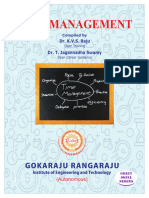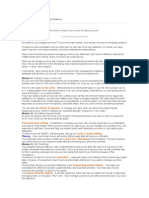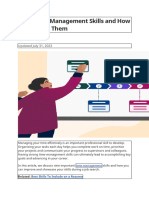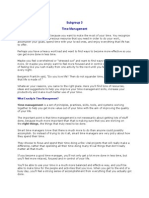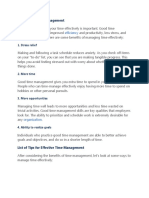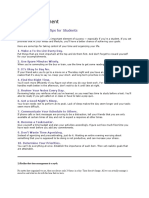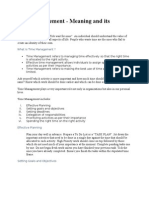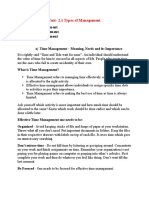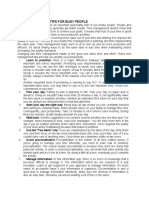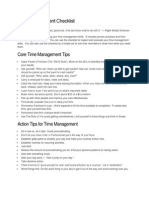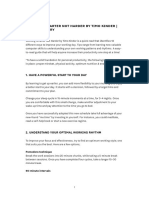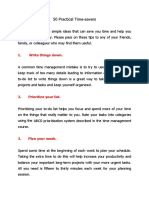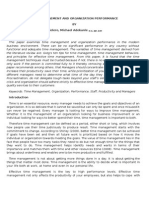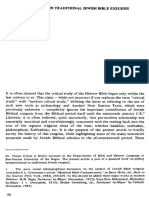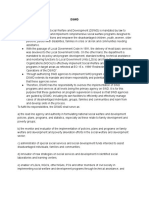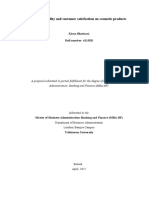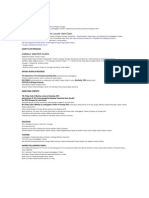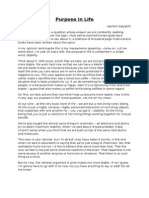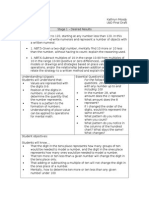0% found this document useful (0 votes)
17 views7 pagesTime Managment
The document discusses the importance of time management, outlining various techniques and common mistakes individuals make when managing their time. It emphasizes the benefits of effective time management, such as increased productivity and reduced stress, while also providing strategies for setting goals, planning, and prioritizing tasks. Additionally, it introduces a time matrix to categorize tasks based on their urgency and importance, helping individuals focus on what truly matters.
Uploaded by
awokegoshiCopyright
© © All Rights Reserved
We take content rights seriously. If you suspect this is your content, claim it here.
Available Formats
Download as DOCX, PDF, TXT or read online on Scribd
0% found this document useful (0 votes)
17 views7 pagesTime Managment
The document discusses the importance of time management, outlining various techniques and common mistakes individuals make when managing their time. It emphasizes the benefits of effective time management, such as increased productivity and reduced stress, while also providing strategies for setting goals, planning, and prioritizing tasks. Additionally, it introduces a time matrix to categorize tasks based on their urgency and importance, helping individuals focus on what truly matters.
Uploaded by
awokegoshiCopyright
© © All Rights Reserved
We take content rights seriously. If you suspect this is your content, claim it here.
Available Formats
Download as DOCX, PDF, TXT or read online on Scribd
/ 7

